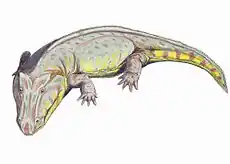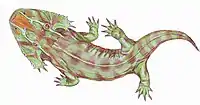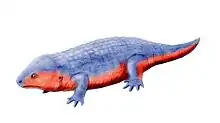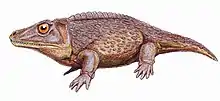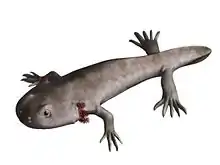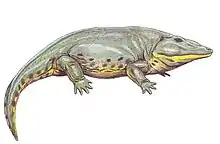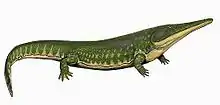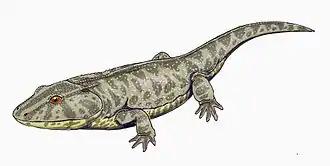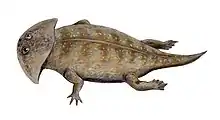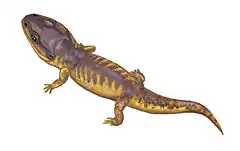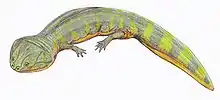Pelorocephalus
Pelorocephalus (meaning "monstrous head" in Greek) is an extinct genus of chigutisaurid temnospondyls from the Late Triassic (Carnian) Cacheutá Formation of the Cuyo Basin and the Ischigualasto Formation of the Ischigualasto-Villa Unión Basin, both in northwestern Argentina. Three species are currently recognized: the type species C. mendozensis, which was named in 1944, P. tenax, which was named in 1949 as a species of Chigutisaurus and reassigned to Pelorocephalus in 1999, and P. cacheutensis, which was named in 1953 as another species of Chigutisaurus and reassigned to Pelorocephalus along with P. tenax. A fourth species, P. ischigualastensis, was named in 1975 after the formation it was found in. The species P. tunuyanensis was named in 1948 but has since been synonymized with P. mendozensis.[1] The largest individuals are estimated to have been over 107 centimetres (42 in) in length.[2]
| Pelorocephalus Temporal range: Carnian | |
|---|---|
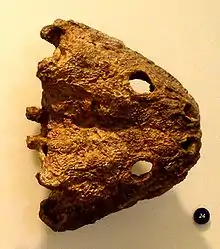 | |
| Skull of Pelorocephalus mendozensis | |
| Scientific classification | |
| Kingdom: | Animalia |
| Phylum: | Chordata |
| Order: | †Temnospondyli |
| Suborder: | †Stereospondyli |
| Family: | †Chigutisauridae |
| Genus: | †Pelorocephalus Cabrera 1944 |
| Type species | |
| Pelorocephalus mendozensis Cabrera 1944 | |
| Species | |
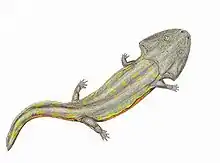
References
- Warren, A.; Marsicano, C. (2000). "A phylogeny of the Brachyopoidea (Temnospondyli, Stereospondyli)". Journal of Vertebrate Paleontology. 20 (3): 462. doi:10.1671/0272-4634(2000)020[0462:APOTBT]2.0.CO;2.
- Angellis.net
